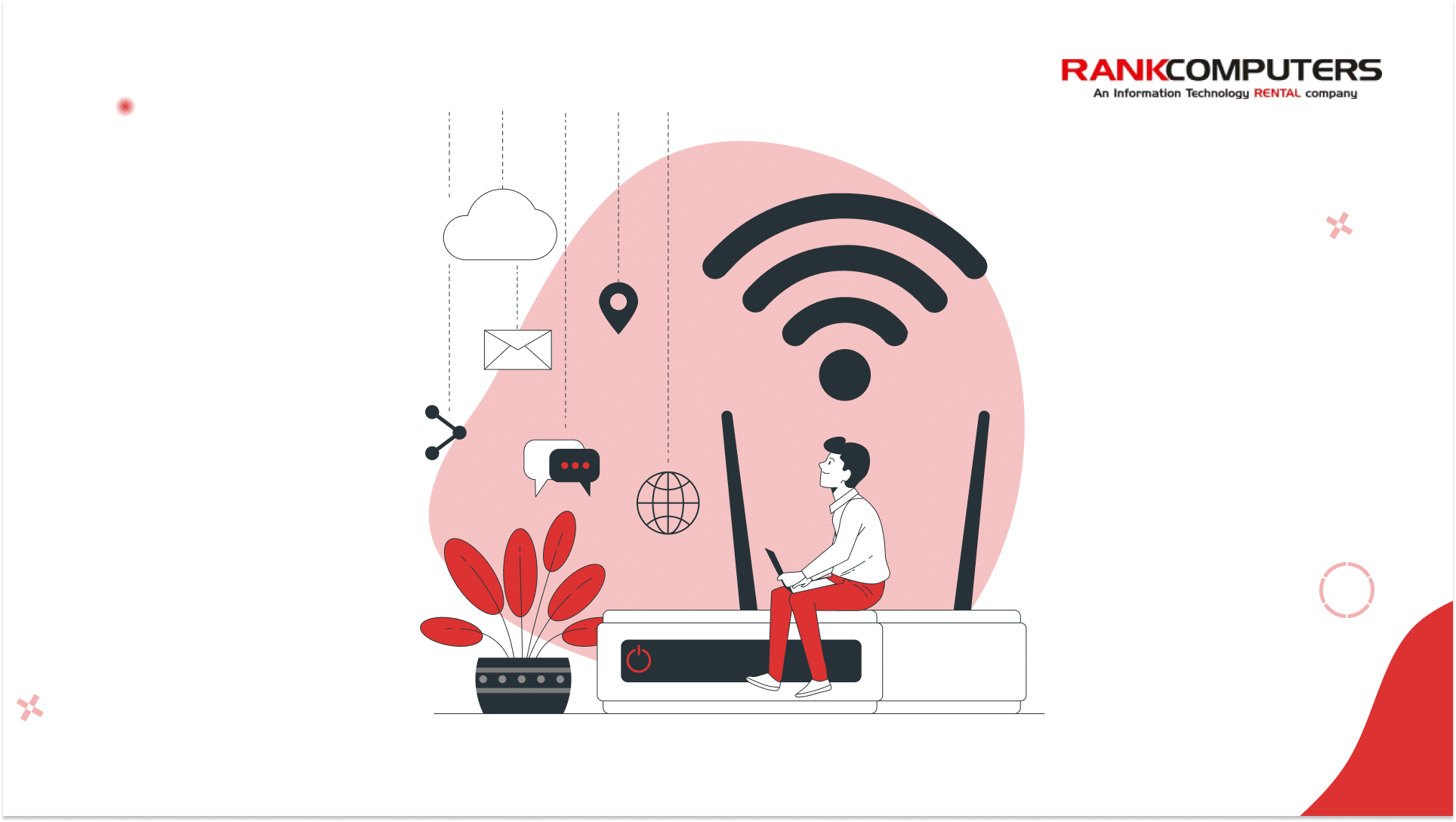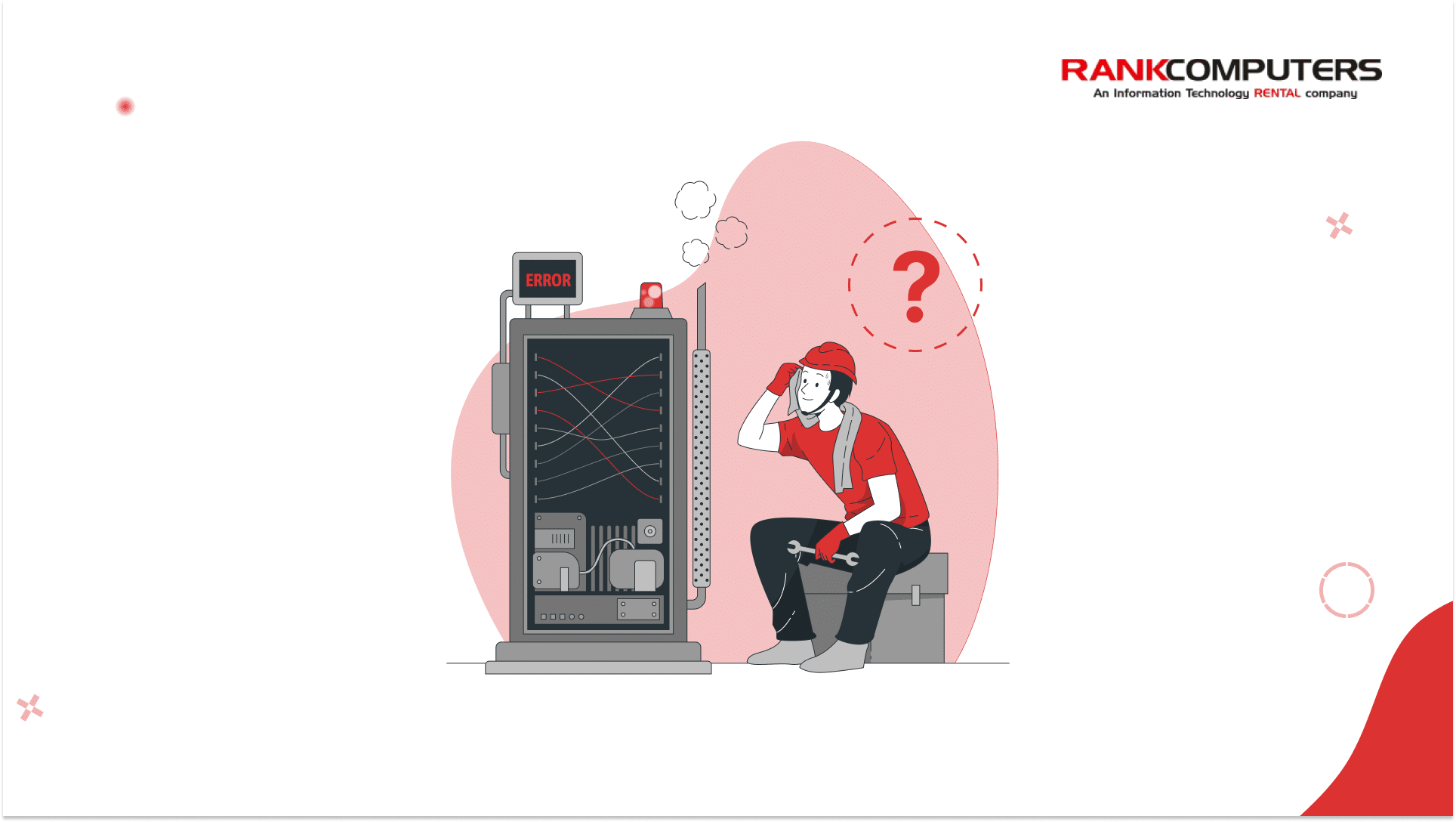
Best 8 Routers in India for Speed & Coverage (2025)
A reliable internet connection depends on more than just a fast broadband plan. The right router plays a key role in delivering strong, stable Wi-Fi
With modern, up-to-date equipment available on rent at competitive prices and flexible terms, Rank Computers can help you save significantly on IT costs and streamline your infrastructure.




Renting IT equipment isn’t just a wise way to save money—it’s a practical, strategic choice
for businesses trying to stay competitive and adaptable.

Cut Down IT Costs
Startups need cash for growth, not expensive IT. Renting gives you access to essential tech—laptops, servers, and more—without big upfront costs, allowing you to focus your budget on building your product and acquiring customers.

Upgrade Without Heavy Investment
Outdated tech can hurt your business, but constantly buying new equipment drains your funds. Renting gives you access to the latest tools when you need them, helping you stay competitive without tying up capital.

Flexible Solutions for Temporary Projects
For large companies, renting IT equipment meets short-term needs like project teams or seasonal spikes without the burden of long-term commitments and maintenance costs. Return equipment when it's no longer needed.

Affordable Access to Modern Tech
With tight budgets and changing student needs, renting allows schools and universities to provide up-to-date technology in classrooms and labs. Equip your students with the latest tools without committing to expensive purchases.
Looking for a budget-friendly laptop that delivers performance for daily business tasks? The Acer One 14 is an excellent choice…
The HP 240 G7 is an ideal choice for professionals who need performance and portability at an affordable cost. Whether…
Looking for a laptop that combines power, versatility, and style? The ASUS VivoBook series is the perfect choice for professionals,…
Rent Dell’s premium laptops like Latitude, Precision, and Vostro power packed with AI-enabled advanced features. Perfect for those who want…
Upgrade your workspace with HP’s high-performance desktops available on rent. These desktops offer the perfect blend of power, security, and…
The iPad Air (5th Gen) combines power and versatility with the M1 chip, 10.9-inch Liquid Retina display, and Apple Pencil…
Sleek, powerful, and ultra-portable – the MacBook Air 15” (M2) is the perfect balance of performance and convenience. With the…
15+ locations across India for fast, reliable service to businesses of all sizes.
We come to you for quick business recovery.
Rental plans available for daily, weekly, monthly, or longer-term use.
Guaranteed quick response time for rental equipment issues.
Fast delivery of rental equipment to keep up with business demands.
Available around-the-clock to provide expert support for any issues that may arise.
Listen to what other business owners have to say about renting IT equipment from us.

A reliable internet connection depends on more than just a fast broadband plan. The right router plays a key role in delivering strong, stable Wi-Fi

Hardware failures are inevitable, but they don’t have to come as a complete surprise. Recognising the early signs of a failing component can save you

Ever wondered how the tech behind websites and apps has evolved? We don’t often think about it, but servers play a huge role in everything